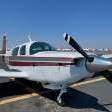Recommendations for pressure gauges for fuel setup
-
Members Online
- merlin
- GeeBee
- MatthiasArnold
- ArtVandelay
- MikeOH
- TheAv8r
- toto
- AlexLev
- LANCECASPER
- takair
- jamesm
- SoccerCA
- ajudson
- 1980Mooney
- Andy95W
- Jim Peace
- Blackroc
- Thedude
- Officer25
- corn_flake
- Hall Liu
- redbaron1982
- Dmax
- 201Mooniac
- SARNorm
- hammdo
- Ragsf15e
- pirate
- Flyler
- 201er
- DanM20C
- Apex
- BrianW
- Airways
- ProtoFly
- Grumpy
- GMBrown
- Gary Bymers
- PT20J


Recommended Posts